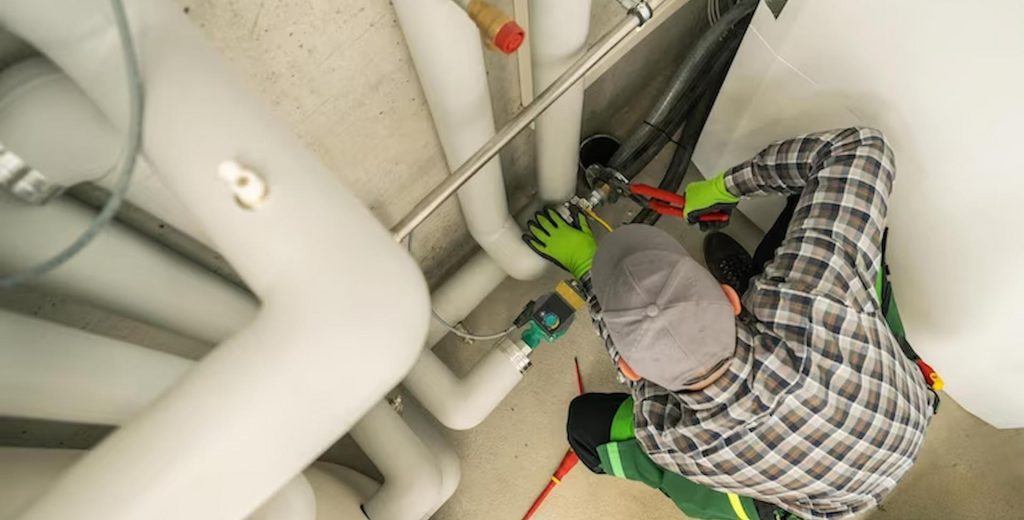When it comes to the infrastructure of our homes and businesses, few things are as crucial as the pipes that carry water and waste. However, even the sturdiest pipes can encounter issues over time, leading to leaks, clogs, and other headaches. Fortunately, there are expert solutions available to address these pipe problems efficiently, ensuring smooth operations and peace of mind for property owners.
Understanding Common Pipe Issues
Pipe problems can manifest in various ways, from dripping faucets to burst pipes. Leaks are among the most prevalent issues, often caused by corrosion, high water pressure, or wear and tear over the years. Clogs are another nuisance resulting from a buildup of debris, grease, or mineral deposits within the pipes. Additionally, pipes may suffer damage from tree roots, shifting soil, or extreme temperatures, leading to cracks or breaks.
The Importance of Timely Repairs
Ignoring pipe problems can have serious consequences, ranging from water damage to structural issues. Even a tiny leak can waste gallons of water and contribute to mould growth and property damage. Likewise, a clogged pipe can disrupt water and sewage flow, causing backups and unpleasant odours. Prompt repairs are essential to prevent these problems from escalating and to maintain the integrity of the plumbing system.
Expert Solutions for Pipe Repairs
Thankfully, several effective methods for repairing damaged pipes are suited to different types of issues and pipe materials. One common approach is pipe relining, where a flexible liner is inserted into the existing pipe and hardened to create a seamless, durable barrier against leaks and corrosion. This method is handy for repairing small cracks and preventing further deterioration.
For more extensive damage, pipe replacement may be necessary. Traditional methods involve digging up the old pipe and installing a new one, which can be disruptive and costly. However, trenchless pipe replacement offers a more convenient alternative, utilising specialised equipment to insert a new pipe into the existing one with minimal excavation. This technique replaces damaged or outdated pipes without disturbing landscaping or infrastructure.
Choosing the Right Professionals
When it comes to pipe repairs, hiring experienced professionals is paramount. Look for licensed plumbers with a track record of quality work and satisfied customers. Additionally, inquire about their approach to repairs and the techniques they use, ensuring they employ modern, efficient methods that minimise disruption and downtime.
Preventing Future Pipe Problems
In addition to addressing existing pipe issues, proactive maintenance can help prevent future problems and extend the lifespan of your plumbing system. Here are some simple steps you can take to keep your pipes in top condition:
- Regular Inspections: Schedule routine inspections by a qualified plumber to identify potential issues before they escalate. Early detection can save you time, money, and headaches.
- Monitor Water Usage: Keep an eye on your water bill for any sudden spikes, as this could indicate a hidden leak. Also, be mindful of unusual sounds or odours from your pipes, as these may signal underlying problems.
- Avoid Chemical Drain Cleaners: While tempting as a quick fix for clogs, chemical drain cleaners can cause more harm than good by corroding pipes and harming the environment. Instead, opt for mechanical methods like plungers or drain snakes to clear blockages safely.
- Proper Disposal Practices: Be mindful of what you flush down the drain or dispose of in your garbage disposal. Avoid dumping grease, coffee grounds, or fibrous materials like paper towels down the drain, as these can contribute to clogs.
- Protect Pipes from Freezing: In colder climates, insulate exposed pipes and take precautions to prevent freezing during winter. Frozen pipes can burst and cause significant damage, so take steps to keep them warm and insulated.
- Address Hard Water Issues: If you live in an area with hard water, consider installing a water softener to reduce mineral buildup in your pipes. Over time, mineral deposits can restrict water flow and contribute to corrosion, so mitigating these effects can prolong the life of your plumbing system.
By incorporating these preventive measures into your maintenance routine, you can minimise the risk of future pipe problems and ensure the long-term reliability of your plumbing infrastructure.
Conclusion
Pipe problems are a common concern for property owners, but with expert solutions and proactive maintenance, they need not be a source of stress. By addressing issues promptly, investing in quality repairs, and implementing preventive measures, you can protect your plumbing system and preserve the integrity of your property for years to come. Whether you’re dealing with a minor leak or a primary pipe replacement, trust in the expertise of licensed professionals to deliver efficient solutions and restore peace of mind. Don’t let pipe problems disrupt your daily life—take control of your plumbing today and enjoy a worry-free future.



